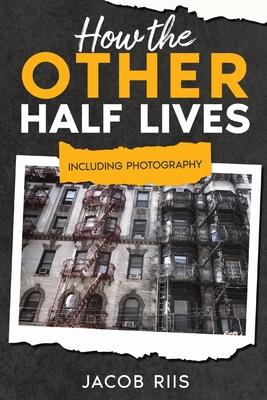''How the Other Half Lives'' by Jacob Riis sheds fascinating light on how our immigrants in the 1800's lived in New York City. A must-read for Americans whose family has been in the U.S. for only a few generations, this book tells what it was really like in the slums. Whether Irish, Italian, Jewish, Chinese or Polish, German, Russian, hordes of refugees ended up in New York on the promise of a better life. Entrepreneurs lured poor people from Eastern Europe and contracted out their labor in sweat shops in the US. The laborers lived in tenements, which were dark, unventilated cages in blocks of buildings that rented for a surprising high rent to people who died by the thousands in the unsanitary conditions. The conditions described by Jacob Riis in this classic are heart-rending, especially the part about foundling babies (abandoned newborns). A cradle was put outside a Catholic Church and instead of a baby each night, racks of babies appeared. The Church had to establish foundling hospitals run by nuns, who persuaded the unwed or impoverished mothers to nurse the baby they gave up, plus another baby. The child mortality rate, especially in the ''back tenements'' or buildings built on to the back of others (dark and airless) was incredible. Riis also provides interesting information about the gangs of New York in ''How the Other Half Lived.''

How the Other Half Lives: Including Photography (Annotated)
''How the Other Half Lives'' by Jacob Riis sheds fascinating light on how our immigrants in the 1800's lived in New York City. A must-read for Americans whose family has been in the U.S. for only a few generations, this book tells what it was really like in the slums. Whether Irish, Italian, Jewish, Chinese or Polish, German, Russian, hordes of refugees ended up in New York on the promise of a better life. Entrepreneurs lured poor people from Eastern Europe and contracted out their labor in sweat shops in the US. The laborers lived in tenements, which were dark, unventilated cages in blocks of buildings that rented for a surprising high rent to people who died by the thousands in the unsanitary conditions. The conditions described by Jacob Riis in this classic are heart-rending, especially the part about foundling babies (abandoned newborns). A cradle was put outside a Catholic Church and instead of a baby each night, racks of babies appeared. The Church had to establish foundling hospitals run by nuns, who persuaded the unwed or impoverished mothers to nurse the baby they gave up, plus another baby. The child mortality rate, especially in the ''back tenements'' or buildings built on to the back of others (dark and airless) was incredible. Riis also provides interesting information about the gangs of New York in ''How the Other Half Lived.''